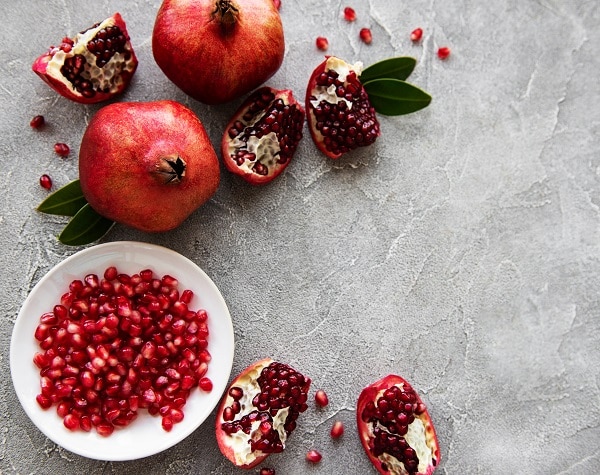Are you looking for an easy way to improve your health? Making small changes to your diet can greatly impact how you feel physically, mentally, and emotionally. Eating healthier doesn’t necessarily mean following a strict diet plan; making gradual, smaller changes over time can lead to more sustainable results. This article will provide tips and strategies for successfully incorporating healthy dietary choices into your life without making drastic adjustments that may be hard to keep up with in the long run. Read on to learn how to make small diet changes for big health benefits later!
Contents
- 1 Why Your Diet Is So Important
- 2 Make Small Diet Changes For Big Health Benefits
- 3 Cut Back On Sugary Drinks And Treats
- 4 Increase Your Intake Of Whole Grains
- 5 Watch Your Portion Sizes
- 6 Add More Fruits And Vegetables To Your Diet
- 7 Choose Leaner Sources Of Protein
- 8 Stay Away From Processed Foods Whenever Possible
- 9 Take Time To Eat Slower And Enjoy Your Food
- 10 How To Make Small Diet Changes For Big Health Benefits
Why Your Diet Is So Important
Eating a balanced and healthy diet profoundly benefits your short-term and long-term health. What you eat can help protect against disease, improve energy levels, and make you look your best. When combined with regular exercise, following a healthy diet can help you reach and maintain a healthier weight, reduce stress, lower blood pressure and cholesterol, and even improve the quality of your sleep. While it may be tempting to want immediate results when overhauling your diet, remember to take small steps that are sustainable over the long term.
Make Small Diet Changes For Big Health Benefits
Cut Back On Sugary Drinks And Treats

When you consume sugary drinks or candy, although they may taste good, such short-term pleasure comes at a long-term cost to your body. Sugary drinks and treats may seem like innocent indulgences, but too much consumption can drastically affect your health. High amounts of sugar can lead to weight gain and an increased risk of heart disease, stroke, and type 2 diabetes.
Limiting your consumption of sugary drinks and treats is essential if you want to maintain a healthy lifestyle and reduce the risk of severe conditions that come with consuming high amounts of sugar. Ultimately, cutting back on sugary drinks and treats shows self-discipline and serves as a proactive step towards sustaining your well-being and overall quality of life!
Increase Your Intake Of Whole Grains

Eating whole grains is essential for your health and well-being. While refined grains have had some of the nutritional elements stripped away, whole grains contain all of these essential nutrients, allowing you to re-nourish your bodies with things like fiber and B vitamins. Whole grains also provide complex carbohydrates and are incredibly satiating, allowing you to stay fuller for longer and helping you avoid unhealthy snacks between meals.
Not only that but by properly fueling your body with healthy foods like whole grains, you can help manage your body weight more effectively. Eating more whole grains brings many benefits, such as improved digestion and a decreased risk of various chronic health problems such as type 2 diabetes and heart disease, making it clear why you should work towards increasing your intake of them.
Watch Your Portion Sizes

As Americans, you tend to eat large portions; however, research suggests that smaller portions are beneficial for promoting long-term weight management and preventing obesity. It is essential to watch your portion sizes because it can help you control your health outcomes. Overeating can increase the risk of developing diabetes, cardiovascular disease, and other chronic illnesses.
When you eat larger portions, your body often gets more calories than you need, which can lead to weight gain. It is also essential to pay attention to what types of foods make up those portions — you should fill half your plate with fruits and vegetables while ensuring the other half contains lean proteins and whole grains. By exercising portion control, you may achieve a more balanced diet that will help maintain your overall health in the long run.
Add More Fruits And Vegetables To Your Diet

Adding more fruits and vegetables to your diet is one of the best things you can do for your health. Fruits and vegetables contain essential nutrients like fiber, vitamins, minerals, and antioxidants that are beneficial for keeping your body running smoothly. Eating a variety of colorful produce provides the necessary fiber to support digestion, keeps your blood sugar stable, boosts immunity, and promotes overall better health.
Not only do fruits and vegetables provide key nutrients you may not get from other sources, but they also help fill you up without weighing you down with excess calories or processed foods. Adding more produce to your diet is an easy way to gain a boost of nutrition — plus, it helps reduce the risk of obesity, heart disease, and some cancers.
Choose Leaner Sources Of Protein

Choosing leaner sources of protein is essential for maintaining a healthy diet. Eating foods high in lean protein limits the amount of saturated fat intake, helping to lower your cholesterol levels and reduce the risk of developing certain heart diseases. In addition, lean proteins are an excellent source of several vitamins and minerals such as iron, zinc, and vitamins B6 and B12. These minerals contribute to a person’s overall health by providing energy from a balanced diet.
Lean proteins also contain essential amino acids needed to develop and repair muscles, tendons, and ligaments and promote optimal muscle growth and recovery. By choosing leaner sources of protein such as fish, beans, lentils, naturally low-fat dairy, skinless poultry, nuts, and seeds, you can promote lasting health benefits while still enjoying delicious meals!
Stay Away From Processed Foods Whenever Possible

Eating processed foods is a major contributor to many health problems people face today. Processed foods are typically full of unhealthy trans fats, sodium, sugar, and artificial ingredients and lack essential vitamins and minerals that your bodies need to maintain optimal health. In addition, these types of food are generally lower in fiber and bulk than fresh or unprocessed options.
Eating too many heavily processed foods can become prone to certain illnesses such as diabetes, heart disease, stroke, cancer, and obesity. Furthermore, processed foods often lead to higher stress hormones, which can cause fatigue and insomnia over time. Your overall well-being should stay away from overly processed foods whenever possible by incorporating more fresh and nutritious options into your diet. Doing so will help you feel healthier while providing the energy needed to stay active and productive throughout the day.
Take Time To Eat Slower And Enjoy Your Food

Taking time to slow down and fully enjoy your meals has become increasingly important in a world of fast-paced lifestyles. Eating slowly can have great health benefits – allowing the body to absorb more nutrients from food, as well as helping you stay fuller for longer. Eating quickly often means you don’t pay attention to how much you eat and can lead to overeating or, worse – eating unhealthy foods.
It also takes away from the pleasurable act of savoring every bite’s aroma, texture, and taste! Enjoying food should not only be viewed as a physical need but an emotional one as well. Taking time while eating allows you to connect with your physical and emotional needs in a meaningful way. Slow eating is so important because it offers nutritional value and moments of joy, peace, and well-being that are essential for a happy life.
How To Make Small Diet Changes For Big Health Benefits
Making small changes to your diet can have big health benefits! Adding more fresh produce to your diet, choosing leaner sources of protein, staying away from processed foods, and taking time to eat slower and enjoy your food are all simple steps that can help lead you to better overall health. Don’t be afraid to challenge yourself, as small changes can have big results – you may find that making healthier choices is easier! By making these small diet changes consistently over time, you will reap the rewards of a longer and healthier life.


